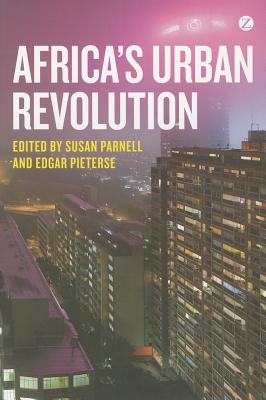
description
isation are startling. By 2030 African cities will have grown by more than 350 million people and over half the continent's population will be urban. Yet in the minds of policy makers, scholars and much of the general public, Africa remains a quintessentially rural place. This lack of awareness and robust analysis means it is difficult to make a policy case for a more overtly urban agenda. As a result, there is across the continent insufficient urgency directed to responding to the challenges and opportunities associated with the world's last major wave of urbanisation. Drawing on the expertise of scholars and practitioners associated with the African Centre for Cities, and utilising a diverse array of case studies, Africa's Urban Revolution provides a comprehensive insight into the key issues - demographic, cultural, political, technical, environmental and economic - surrounding African urbanisation.
member goods
No member items were found under this heading.
Return Policy
All sales are final
Shipping
No special shipping considerations available.
Shipping fees determined at checkout.







